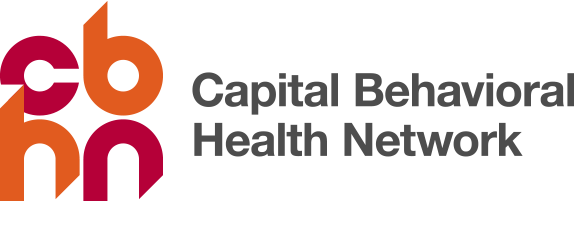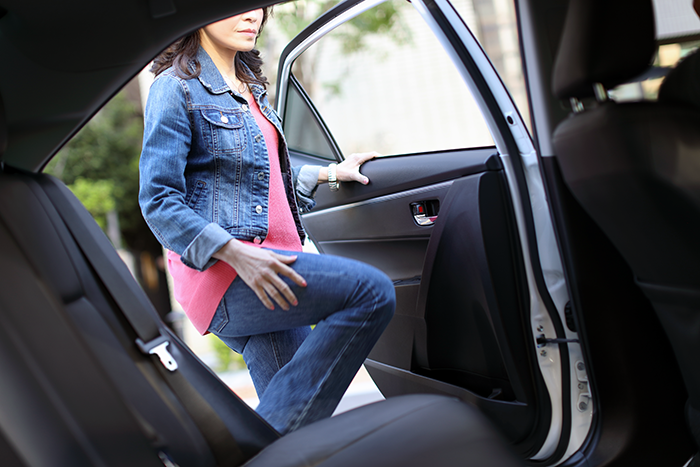Breaking Down Barriers: How Transportation Support Opens Doors to Recovery
For someone in early recovery, the distance between wanting help and actually getting it can feel insurmountable. Something as seemingly simple as transportation can have a huge effect on an individual’s ability to access help.
“Transportation is such a barrier to people in early recovery,” says Kellie Roe, Chief Executive Officer of Second Chance Opportunities.
Robert Hoyt, Program Director of Twin County Recovery Services, agrees that transportation can be a challenge, “Especially in our rural areas. The project has truly been a game changer.” That game changer is a specialized Non-Medical Transportation program coordinated by Capital Behavioral Health Network (CBHN), designed specifically to eliminate transportation barriers that prevent people from accessing treatment and recovery services.
This transportation support is part of a larger recovery picture, enabling people to access the treatment they need, pursue employment opportunities, maintain ongoing recovery services that support job stability, and resolve legal issues that might otherwise prevent progress. By addressing this fundamental barrier, the program helps individuals maintain their independence while building the comprehensive support network essential for long term recovery.
The process is designed for simplicity, with staff at local service organizations able to request rides on behalf of their clients. This non-medical transportation service differs from traditional medical transport by serving a broader range of recovery-supporting destinations, where medical transportation supports those with acute medical needs in getting to and from medical care. The types of locations that this service can be used for are very broad.
“The only parameter is that the transportation aligns with the individual’s treatment or recovery goals”, Kelly Lane, Director of Regional Projects for CBHN notes. “This includes transportation to family visits, job interviews, court appointments, and service appointments all of which are vital to recovery that might not otherwise be available to a person.”
Two distinct options are available: traditional ridesharing and taxi services available 24/7 through local transportation companies, and peer-supported transportation provided weekdays by certified recovery peer advocates with lived experience in substance use and recovery. The peer-driven approach creates opportunities for meaningful conversations and support that wouldn’t be possible with traditional transportation services, helping passengers navigate recovery-related anxiety with guidance from someone who understands their journey.
The program can have a very real effect on patients’ lives. Hoyt recalls working with an individual who had successfully completed treatment and was working toward stable housing. The client had a housing interview scheduled but needed important documents from his medication-assisted treatment provider 70 miles away.
“Thanks to [this program], we were able to transport the person to go get the needed documents and drive him back in time for the interview,” says Hoyt. “He was ultimately accepted and has stable housing now. That wouldn’t have been possible without CBHN.”
Kelly Lane, Director of Regional Projects for CBHN, emphasizes the life-changing nature of this support. “We know this project is having a profound impact in the region when we see the satisfaction surveys from riders that say, ‘This has saved my life’ and ‘I wouldn’t be able to get the help I need without this ride’.”
Peer supported transportation is provided by several organizations in the CBHN Network including Twin County Recovery Services, which operates both outpatient clinics and residential programs, and Second Chance Opportunities, which combines employment with recovery support. In addition to transportation, each provider offers specialized services that address different aspects of recovery.
The program also prioritizes safety and privacy. CBHN addresses concerns about driver vetting that other transportation services may lack, ensuring that riders are in a supportive environment that won’t jeopardize their recovery progress. Additionally, CBHN ensures that minimal information is shared with transportation providers and that no treatment-related or private health information is disclosed to preserve client privacy.
While the transportation support provides an immediate solution, the program’s ultimate goal is fostering independence. Says Lane, “This is intended to be a short-term resource, and part of the work of the provider requesting the transportation is a conversation with the client. ‘We have a short-term solution, but how do we move from this to transportation independence so that you’re able to source your own rides and develop independence’.”
For organizations in the greater capital region, CBHN’s Non-Medical Transportation program, funded by the NYS Office of Addiction Services and Supports (OASAS), is a collaborative approach that amplifies their ability to serve their communities effectively.
“We’re creative. There’s always a solution somewhere,” Hoyt reflects.
Visit the program’s website today to learn more about this program’s non-medical transportation services and how they can support your recovery journey.

